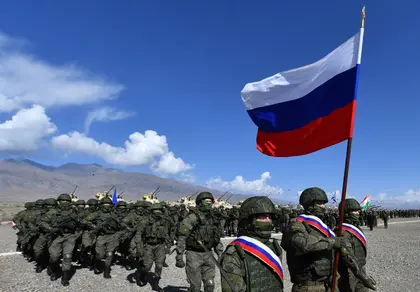On Nov. 23, Minsk is hosting the Collective Security Treaty Organization (CSTO) summit, Belarusian leader Alexander Lukashenko in the chair of. As its members gather, Armenia has said it won’t attend. Is this a sign of the weakness of Putin’s security alliance and a sign that it’s struggling to maintain legitimacy?
Yes, Russia is losing what few friends it has, and this is an opportunity for the West to remind Russia’s remaining allies that Russia is a fair-weather friend.
JOIN US ON TELEGRAM
Follow our coverage of the war on the @Kyivpost_official.
Armenia and Azerbaijan have fought over the Nagorno-Karabakh for several decades. In September, Azerbaijan conducted a military operation there that ended in Azerbaijan taking full control of the region. Armenia is a longtime ally of Russia and part of the CSTO. But when Armenia’s Prime Minister, Nikol Pashinyan, asked Russia for help, Putin sat idly by while its partner was attacked; not even the death of Russian peacekeepers in the fighting triggered any meaningful Russian involvement.
Russia’s failure to assist Armenia shouldn’t be much of a surprise. Putin has long seen the CSTO as another tool to assert his dominance over former Soviet states. It is merely a way to create the perception of multipolarity in world politics, not an institution founded on the principle of reciprocity. Given that Putin has repeatedly proven not to be a reliable partner, it’s not unexpected that countries that were once under Moscow's sphere of influence are beginning to look for cooperation elsewhere.

Loopholes, Lax Enforcement Fuel Russian Sanction Busting, Prolong War
Armenia is at the forefront of those seeking assistance elsewhere. Its Prime Minister Nikol Pashinyan not only told Lukashenko that he would not attend the Minsk summit but according to Imangali Tasmagambetov, the head of the CSTO, Armenia has asked for the removal of CSTO aid to Yerevan to be added to the meeting agenda. In addition, Armenia’s parliament previously voted to join the International Criminal Court (ICC) in October, which previously indicted Russian President Vladimir Putin for war crimes in Ukraine.
Armenia and Russia have had a troubled relationship for years. In 2020, Russia brokered an armistice and deployed peacekeeping forces to Nagorno-Karabakh, who failed to break an Azerbaijani blockade of the Lachin Corridor, the only road link to Armenia, despite it being part of the Russian peacekeeping mandate. Russia also did not intervene when Azerbaijan attacked Nagorno-Karabakh earlier this year, further straining their relationship. In May, Armenia’s Prime Minister, Nikol Pashinyan, also gave notice Armenia might withdraw from the CSTO.
Russia’s Foreign ministry spokeswoman Maria Zakharova accused Pashinyan of an “attempt to sit between two chairs” and said that Russia saw his refusal to attend the CSTO summit as the latest in a “chain” of events seeking allies in the West.
As Putin tries to show that NATO is weak and ineffective, NATO should let the world know that Russia is increasingly isolated and is incapable of keeping its promises, not a regional power broker and that the CSTO represents only a façade of a military alliance.
Vladimir Putin has made no secret of his intention to destroy and discredit NATO. However, Putin's war in Ukraine has not only united NATO, but has resulted in an increase in the organization’s membership. Meanwhile, Putin’s CSTO struggles to get its act together.
As this week’s CSTO meeting takes place, NATO member states should conduct information operations to remind Moscow’s friends that Russia refused its obligation to assist Armenia its treaty-bound ally, Armenia, when they were in trouble. It is only a matter of time before Moscow abandons them, too.
Russia is not a good ally — it abandons its friends in times of need, and it is rapidly losing what few allies it has. With friends like the Kremlin, who needs enemies?
The views expressed in this opinion article are the author’s and not necessarily those of Kyiv Post.
Ivana Stradner is a Research Fellow at the Foundation for Defense of Democracies (FDD). Spencer Finley is an intern at FDD
You can also highlight the text and press Ctrl + Enter










